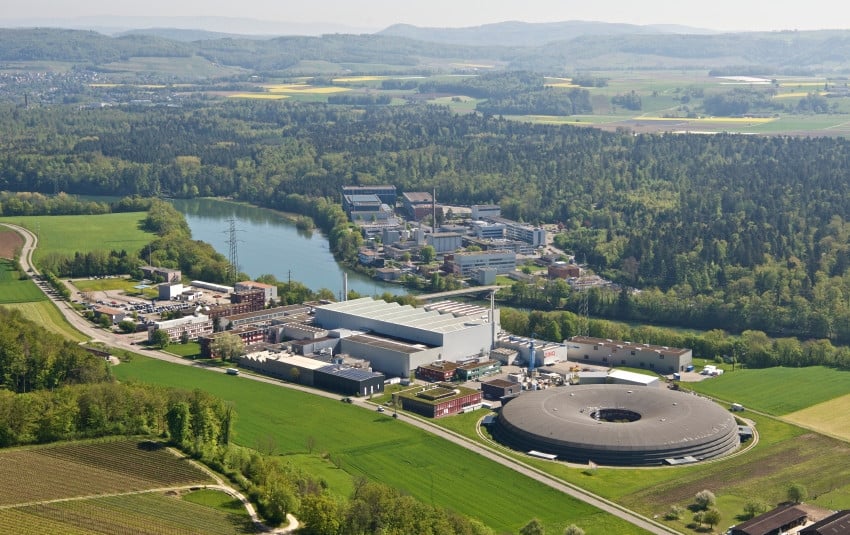

Research Focus:
Established in 1988, the Paul Scherrer Institute (PSI) stands as a premier multidisciplinary research center in Villigen, Switzerland. PSI is dedicated to pushing the boundaries of scientific knowledge across various fields, making significant contributions to particle physics, material sciences, life sciences, energy research, and environmental sciences. The institute's commitment to advancing fundamental scientific inquiries and addressing real-world challenges is evident in its state-of-the-art facilities and cutting-edge equipment that empower researchers to explore the forefront of scientific discovery.
Facilities at PSI are a testament to its commitment to diverse research areas. The Swiss Light Source (SLS) provides exceptionally bright X-ray beams for studies in materials science, biology, and chemistry. The SINQ Neutron Source enables investigations in condensed matter physics and materials science, while the SμS Swiss Muon Source facilitates the study of materials at the atomic level using muons. Additionally, PSI houses the Proton Therapy Center (PTC), a facility on the forefront of cancer treatment through proton therapy.
Scientific Contributions:
In the realm of particle physics, PSI actively participates in experiments at CERN, including collaborations on the Large Hadron Collider (LHC) experiments. Researchers at PSI contribute to the search for new particles and the understanding of their properties. The institute's engagement in material sciences extends from the development of new materials with specific properties to the investigation of fundamental aspects of materials science at the atomic and molecular levels.
In life sciences, PSI is a leader in structural biology, medical imaging, and radiochemistry. The institute's capabilities enable scientists to explore biological structures and processes, fostering advancements in medicine and biotechnology. PSI's commitment to energy research is evident in its studies on sustainable energy sources, energy storage, and the development of materials for energy applications. Furthermore, the institute actively addresses environmental challenges, contributing to research on air and water quality, climate change, and sustainable resource management.
Internationally, PSI plays a crucial role in fostering collaborative research endeavors, creating a global network of scientific partnerships. The institute's dedication to education and training is evident in its support for students, postdocs, and scientists, providing opportunities to engage in cutting-edge research and contributing to the education and development of the next generation of researchers. In essence, the Paul Scherrer Institute continues to be a beacon of scientific excellence, driving innovation, and making substantial contributions to our understanding of the world.
Additional Aspects of the Paul Scherrer Institute (PSI):
International Collaboration:
- PSI actively collaborates with national and international research institutions, fostering a global network of scientific partnerships.
- Participation in international experiments and projects enhances the institute's contribution to cutting-edge research and provides a platform for shared knowledge and expertise.
Advanced Research Infrastructure:
- PSI's commitment to scientific excellence is evident in its state-of-the-art research infrastructure, including particle accelerators, neutron sources, and synchrotron radiation facilities.
- The advanced equipment enables precise experimentation and data collection, attracting researchers from around the world.
Interdisciplinary Research:
- The institute's multidisciplinary approach encourages collaboration between researchers from different fields, fostering a culture of interdisciplinary innovation.
- Interactions between physicists, chemists, biologists, and engineers contribute to holistic solutions for complex scientific challenges.
Healthcare Contributions:
- PSI's Proton Therapy Center (PTC) is at the forefront of cancer treatment, offering cutting-edge proton therapy for patients.
- The PTC's role in advancing medical technology showcases PSI's commitment to translating research into tangible societal benefits.
Innovation and Technology Transfer:
- PSI actively promotes innovation and technology transfer, facilitating the application of research outcomes in industry and society.
- Collaboration with the private sector and the transfer of knowledge contribute to technological advancements and economic development.
Education and Outreach:
- PSI is dedicated to science education and outreach, organizing events, workshops, and educational programs for students and the general public.
- The institute's efforts in science communication aim to inspire and educate the wider community about the importance of scientific research.
Sustainability Initiatives:
- PSI integrates sustainability principles into its operations, promoting eco-friendly practices and minimizing the environmental impact of research activities.
- The institute's commitment to sustainable practices aligns with global efforts to address climate change and environmental conservation.
Continuous Expansion and Upgrades:
- PSI continues to expand and upgrade its facilities, ensuring that researchers have access to the latest technologies and capabilities.
- Ongoing investments in infrastructure reflect the institute's dedication to maintaining its position as a global leader in scientific research.
Scientific Conferences and Symposia:
- PSI organizes and hosts scientific conferences and symposia, providing platforms for researchers to present their findings, share insights, and foster scientific discourse.
- These events contribute to the dissemination of knowledge and the establishment of collaborative networks within the scientific community.
In summary, the Paul Scherrer Institute's impact extends beyond its primary research areas, encompassing international collaboration, cutting-edge infrastructure, interdisciplinary approaches, contributions to healthcare, innovation transfer, educational outreach, sustainability initiatives, and a continuous commitment to scientific advancement.
Read also - https://www.admit360.in/newton-fellowship-research-opportunity
